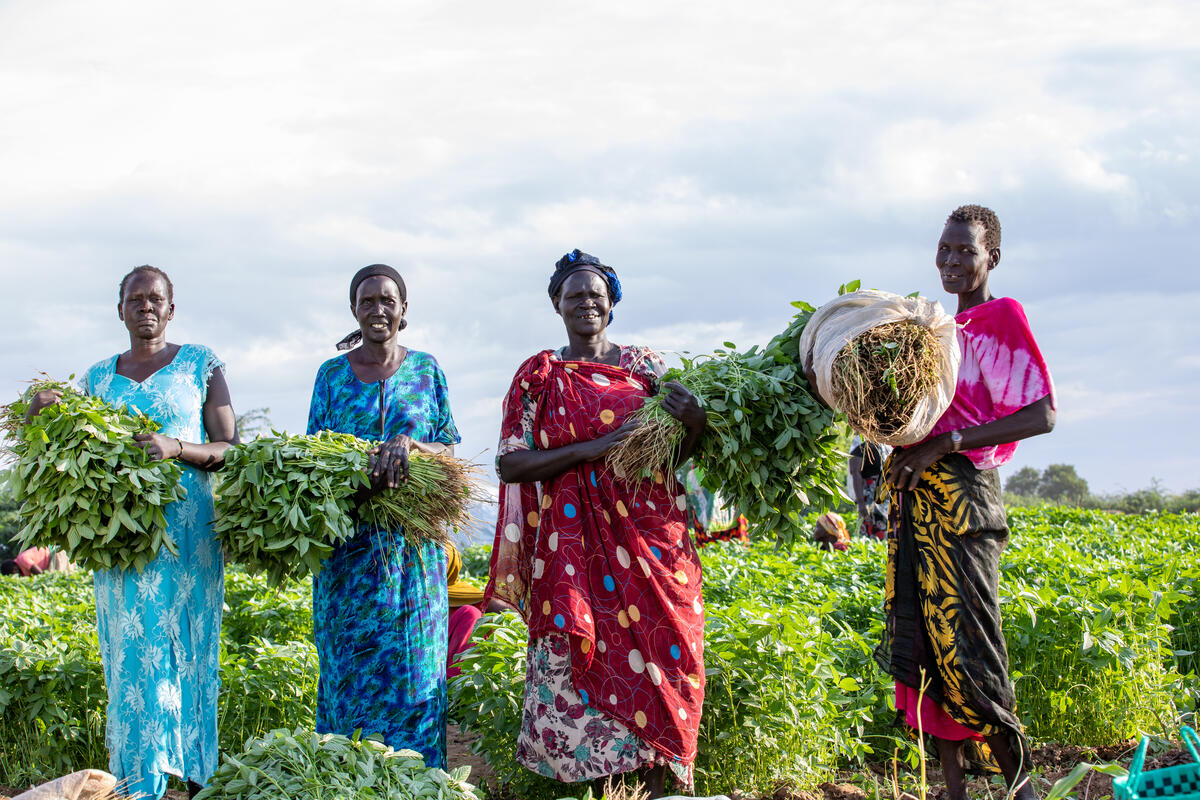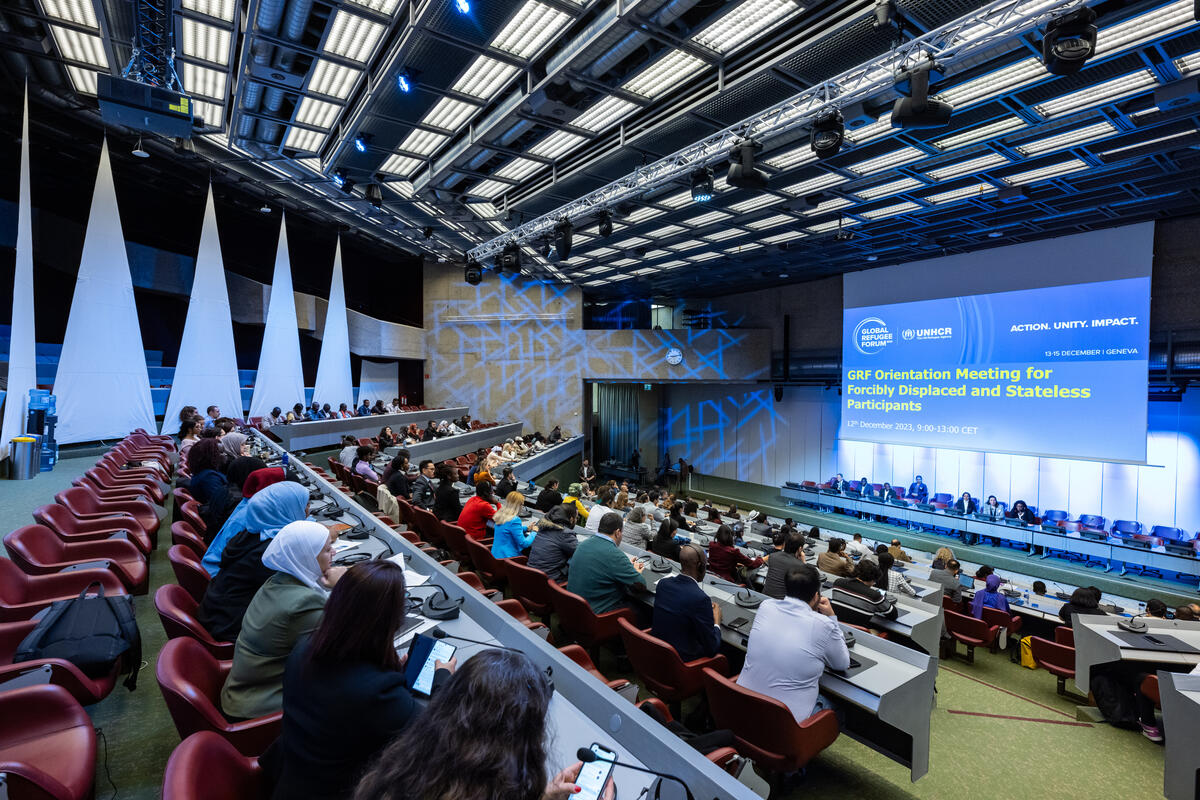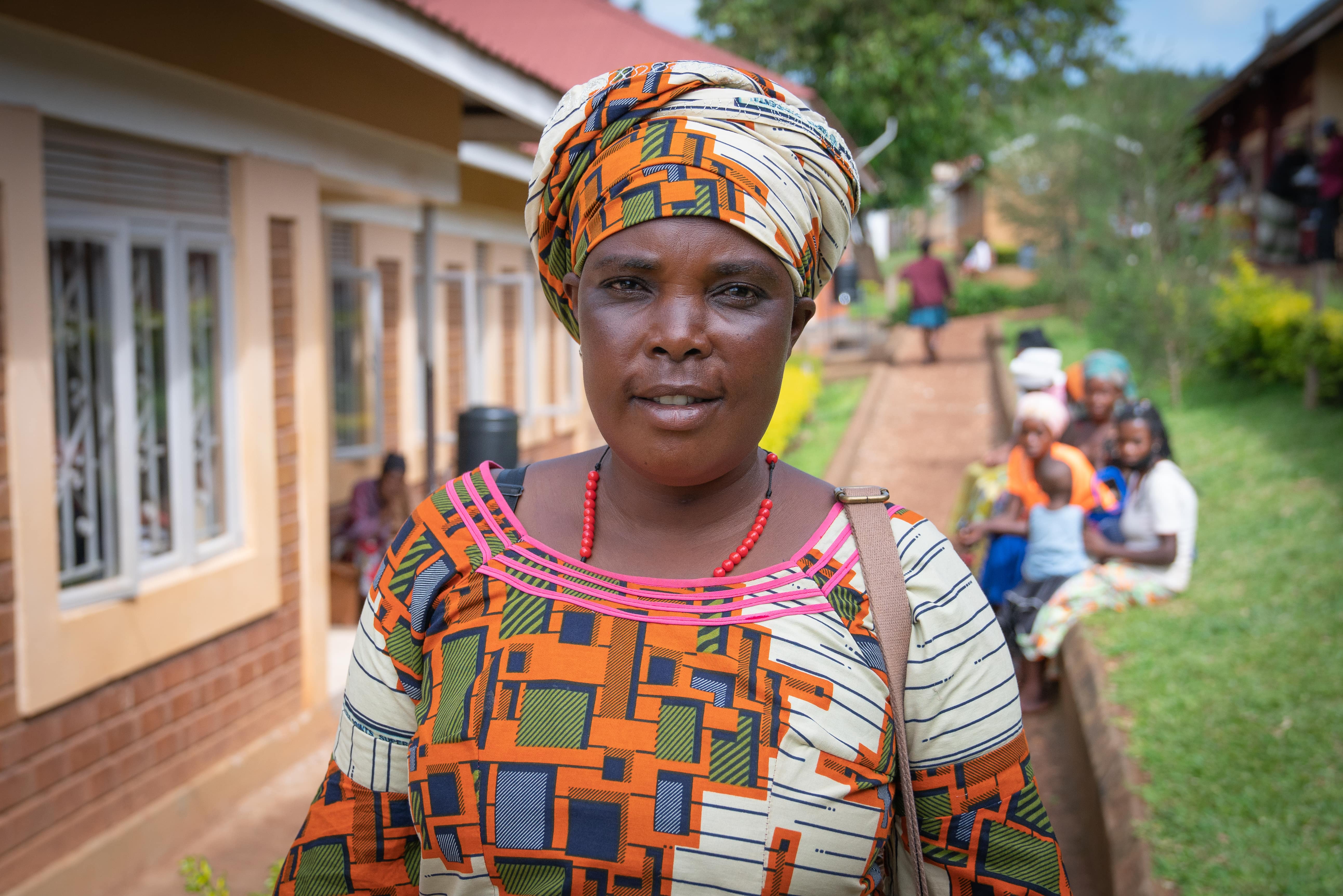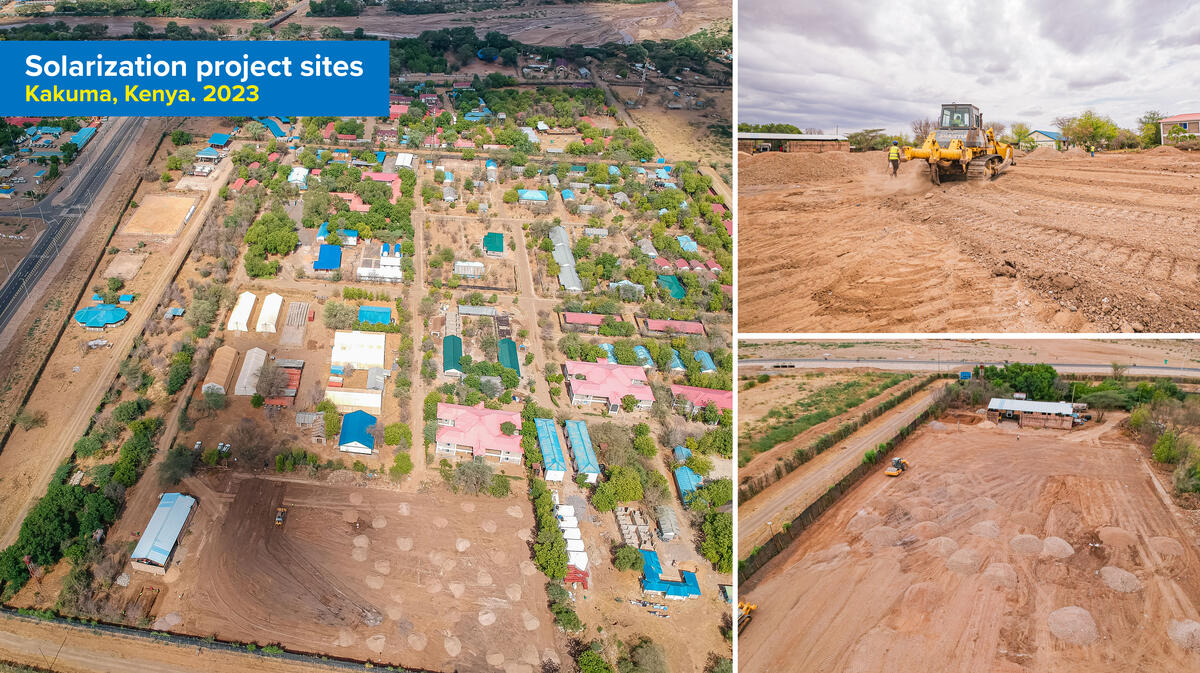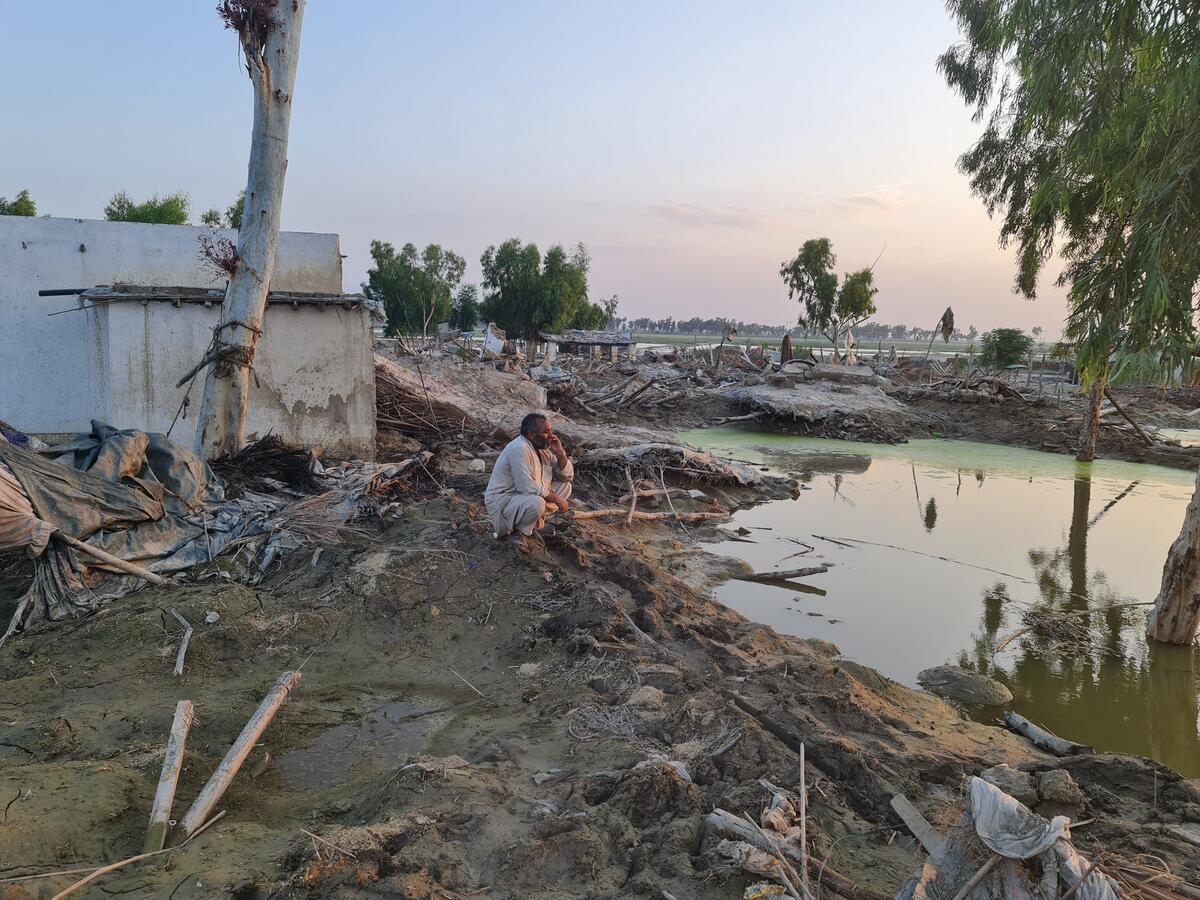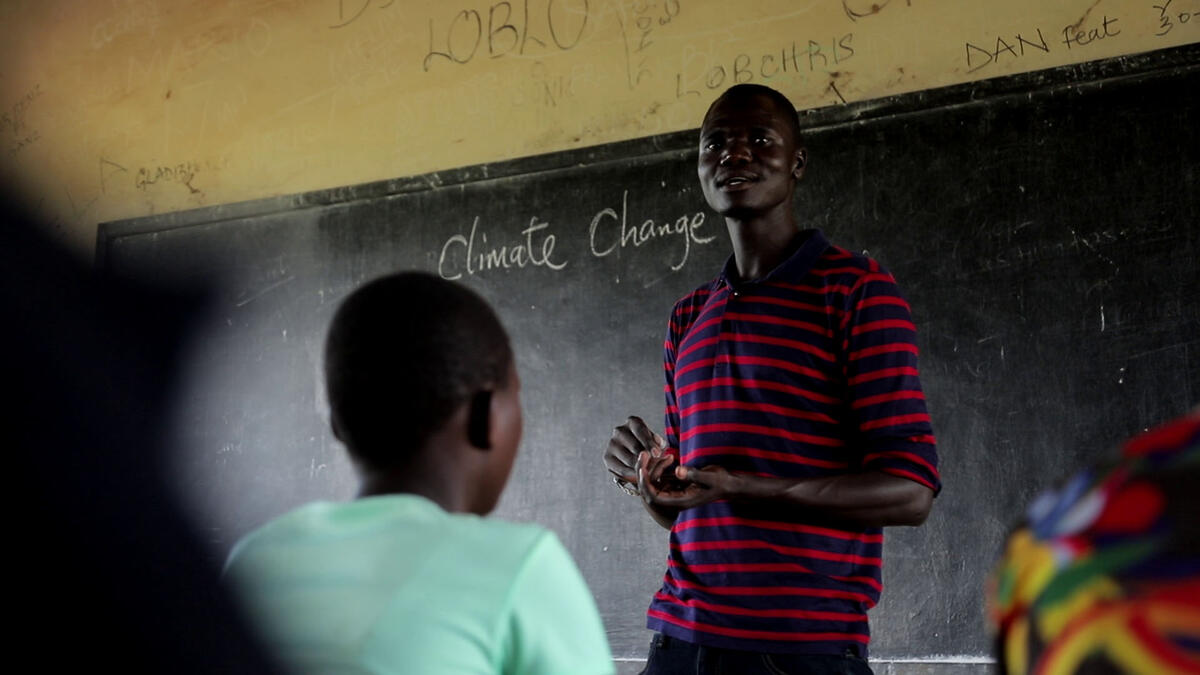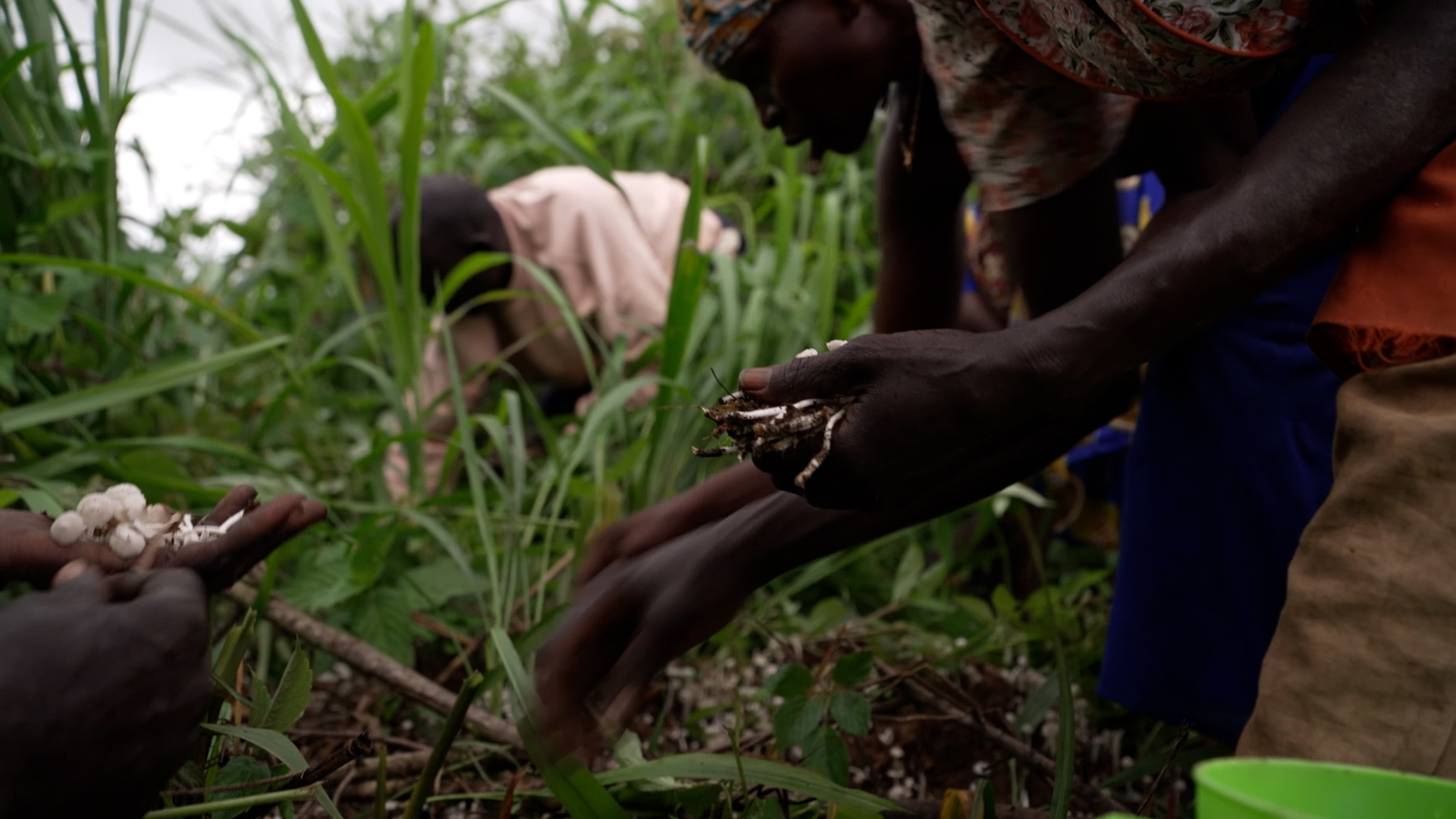Sudanese refugees flee again in long march to safety as UNHCR mobilises relief effort
Sudanese refugees flee again in long march to safety as UNHCR mobilises relief effort

KAMPALA, Uganda, August 7 (UNHCR) - Fears of possible new attacks by rebels from the Lord's Resistance Army (LRA) have sent thousands of Sudanese refugees in Uganda fleeing for a second time in two days as UNHCR orders them to move southwards.
Late on Tuesday, officials from the UN refugee agency ordered the camp manager of Acholi-Pii refugee camp, which was attacked early Monday by LRA insurgents, to lead the thousands of frightened refugees gathered in Rachkoko 60 km southwards to the town of Lira to escape possible fresh attacks by the insurgents.
"We have about 17,000 people who are on the way and about to reach Lira," said UNHCR spokeswoman Bushra Malik.
The Sudanese are moving on foot with little more than the clothes on their backs due to the haste in which they fled Acholi-Pii. Ugandan army troops are providing security to the group.
UNHCR has meanwhile dispatched four experienced staff to northern Uganda to lead teams assisting the frightened refugees. The agency is also sending fresh relief items into the region.
"We're shifting supplies like kitchen sets, blankets and plastic sheets from our stockpile in Ngara, northern Tanzania, to Lira in order to provide shelter for up to 5,000 families," said Saihou Saidy, UNHCR Representative in Kampala.
He added that UNHCR is trying to identify trucks and buses to collect people in Lira as well as any stragglers who cannot make the trip all the way on foot.
Saidy said more than 2,000 Sudanese refugees had already reached Lira and are camped on a football field. The UN World Food Programme is sending food from its stockpile in Gulu, including high-protein biscuits and ready-to-eat meals.
Casualties from Monday's attack on Acholi-Pii remain difficult to ascertain, but UNHCR officials believe that at least 30 people have been killed, possibly many more, including both refugees and Ugandans.
Workers at St. Joseph's Hospital in Kitgum, northern Uganda, said they have given shelter to 120 refugees who camped overnight after fleeing the LRA attack on Acholi-Pii. Two refugees suffering from gunshot wounds following Monday's attack stumbled into Kitgum on Tuesday and are being treated at the facility. Some 60 refugees said that they planned to walk home to Sudan rather than remain in the region.
During Monday's bloody assault, the LRA insurgents abducted four local staff working for the International Rescue Committee, along with several Ugandan schoolteachers and refugees. The rebels also looted food and medical supplies along with other items, and burned offices and huts before retreating with their booty.
Relief agencies are alarmed by the attack on Acholi-Pii and the abduction of the aid workers and refugees. Efforts are being made to obtain the release of all those kidnapped in Monday's raid.
UNHCR staff deployed to Lira are mobilising local relief workers and volunteers from the Ugandan Red Cross to prepare for the arrival of the fleeing Sudanese refugees. One month's supply of drugs and other medical supplies for up to 10,000 people have already been dispatched.
The agency plans to move the frightened Sudanese from Lira to Kiryondongo, further south. The International Organization for Migration has agreed to provide six trucks to assist in the relocation effort. Several thousand refugees earlier reached Kiryondongo.
While the UN refugee agency is collecting the scattered refugees, it also plans to start work on a new refugee camp in Kyangwali some 100 km west of Kiryondongo. The Ugandan government says Acholi-Pii's Sudanese refugees can be safe in Kyangwali, near the shores of Lake Albert.
There are 155,000 Sudanese refugees living in settlements in northern Uganda and more than 500,000 internally displaced Ugandans in the country after years of conflict in the region.

